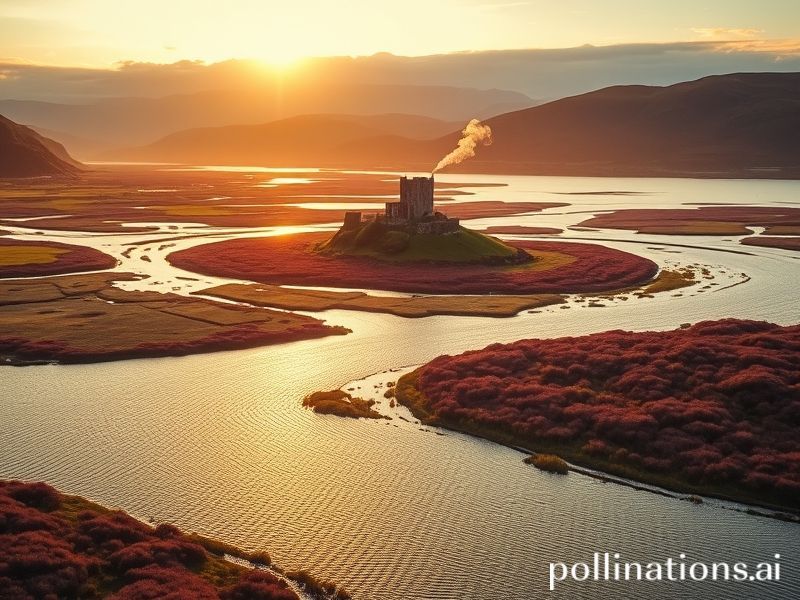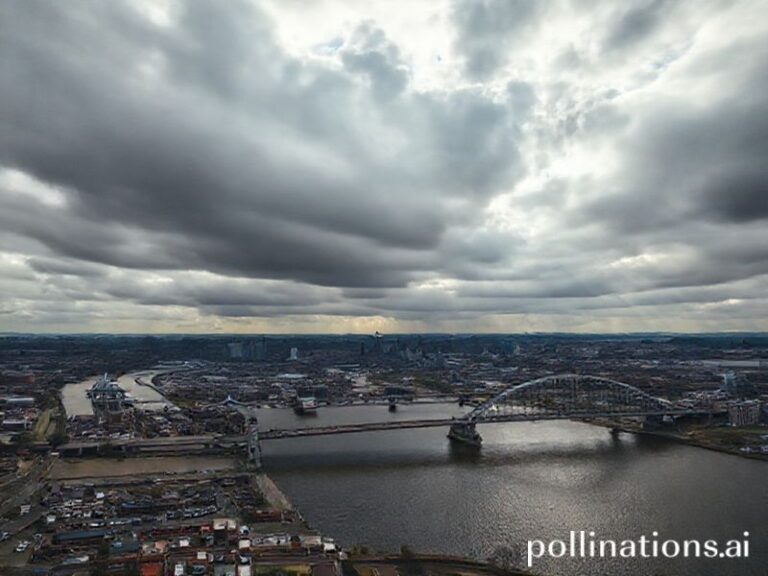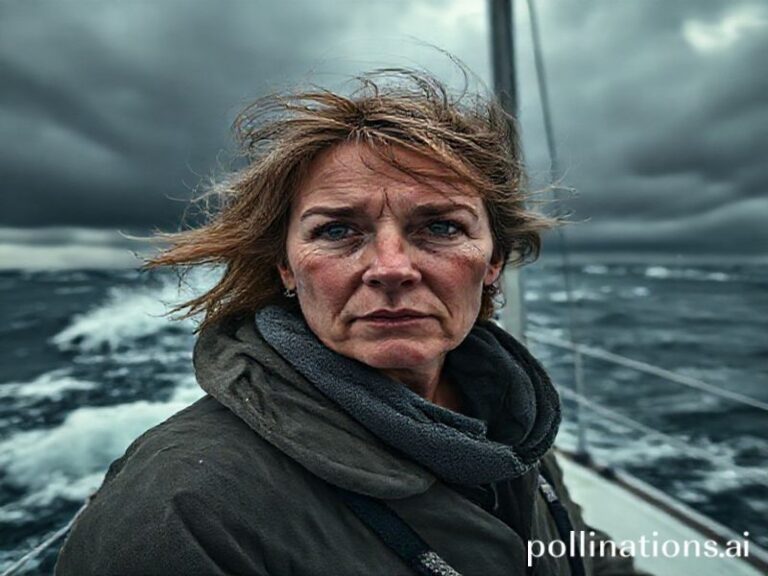Dumfries & Galloway: The World’s Backstage Where Empires and Ideologies Quietly Decompose
DUMFRIES & GALLOWAY: THE QUIET CORNER WHERE EMPIRES GO TO RETIRE
By Dave’s International Affairs Desk
From the vantage point of a Kremlin conference room or a Silicon Valley board table, Dumfries and Galloway is the cartographic equivalent of elevator music—audible, inoffensive, instantly forgettable. Yet this southwestern slab of Scotland, population 148,000 and falling faster than Facebook’s stock, has become the planet’s unofficial hospice ward for grand historical narratives that can’t quite bring themselves to die.
Consider the evidence. Two centuries after the British Empire repatriated its last tax receipt from Kolkata, the region still hosts a Royal Marines training ground where men in sand-colored boots practice amphibious landings on beaches that have not seen a hostile vessel since the Vikings got bored in 1263. The drills proceed under the polite supervision of sheep, who watch with the same blank indifference they reserve for Brexit updates. One almost expects the Marines to ask the ewes for after-action reports: “Ma’am, did our morale project sufficient deterrent effect, or should we try looking marginally more constipated?”
Meanwhile, the local space-age economy consists of a single shiny satellite dish at Goonhilly-on-Sea’s Scottish cousin, Galloway Forest’s radio telescope, which listens for alien civilizations that—if they possess any sense—are wisely staying quiet. The dish sits amid Europe’s first Dark Sky Park, an expanse of unpolluted night so devoid of light that American visitors instinctively reach for their concealed handguns, mistaking the Milky Way for an incoming tactical swarm.
Global finance, never one to miss an apocalypse, has taken note. Hong Kong hedge funds now buy abandoned granite farmsteads as “non-correlated assets”—translation: boltholes where Mandarin-speaking toddlers can learn to pronounce “loch” while their parents wait for the yuan to settle. Local estate agents, whose previous high-water mark was selling a bungalow with an indoor toilet, suddenly bandy phrases like “geopolitical hedge” and “post-urban resilience.” The irony, thick enough to butter scones with, is that the same Brexit which weaponized English nationalism also weaponized Scottish real estate. Every customs delay in Dover adds another zero to the price of a crumbling bothy.
Climate change, that other omnivorous narrative, has turned the region into a living experiment in managed retreat. While Venice debates inflatable floodgates and Jakarta contemplates national relocation, Dumfries and Galloway simply absorbs the excess precipitation like a damp sponge nobody remembers buying. Locals have begun marketing “storm tourism”: pay £35 to stand on a cliff while a North Atlantic gale tries, and fails, to finish the job the Clearances started. German holidaymakers love it; apparently there is something deeply Teutonic about paying for schadenfreude with Gore-Tex.
The wider world also outsources its existential crises here. When the Fukushima meltdown reminded everyone that nuclear power glows in the dark, the UK government quietly shoved another reactor onto the Solway coast at Moorside—close enough to Scotland to terrify Edinburgh, far enough from London to spare Notting Hill’s organic bakeries. Protesters arrive from Belgium and Japan, wave multilingual banners, then nip into Kirkcudbright for gluten-free shortbread. Everybody wins, especially the seagulls, who have learned to distinguish between eco-warriors (pack falafel wraps) and defense contractors (pack steak pies).
And so, in an age when every square meter of the planet must justify itself with KPI dashboards and ESG metrics, Dumfries and Galloway persists as a polite refusal. It is where exhausted ideologies—imperial, financial, ecological—come to graze and eventually compost. The sheep remain unimpressed.
Conclusion: Should you find yourself on a delayed Loganair prop plane circling Prestwick, peer down at those green folds and grey lochs. What you are seeing is not a backwater but the world’s backstage, cluttered with discarded scenery from other people’s dramas. The show goes on, but the props stay here, quietly moss-covered, waiting for the next act of human folly to roll in with the tide. Bring wellies; history is muddy.







